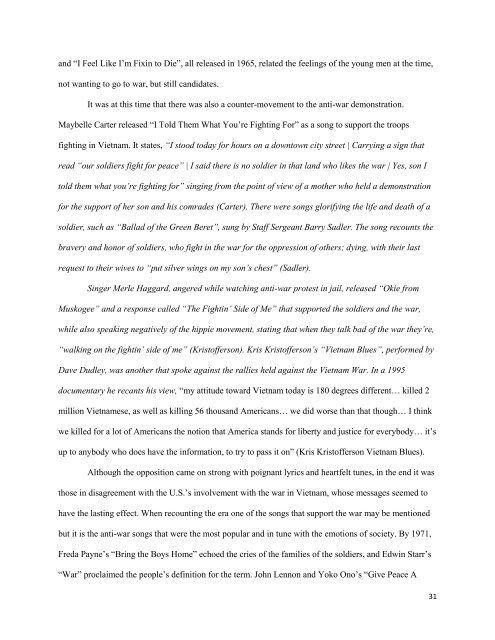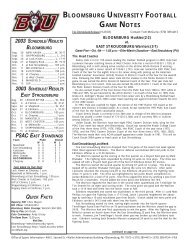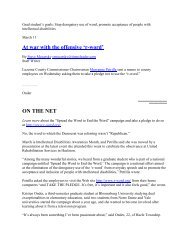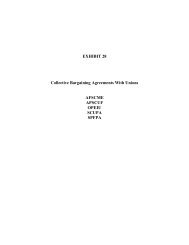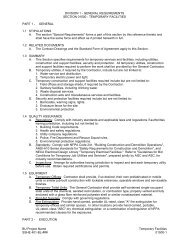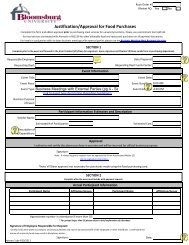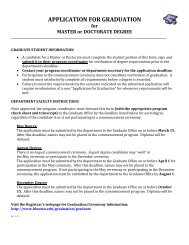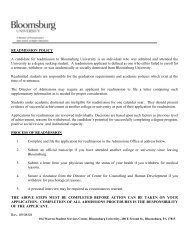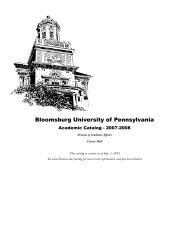Human Rights at Home and Abroad: Past, Present, and Future
Human Rights at Home and Abroad: Past, Present, and Future
Human Rights at Home and Abroad: Past, Present, and Future
You also want an ePaper? Increase the reach of your titles
YUMPU automatically turns print PDFs into web optimized ePapers that Google loves.
<strong>and</strong> ―I Feel Like I‘m Fixin to Die‖, all released in 1965, rel<strong>at</strong>ed the feelings of the young men <strong>at</strong> the time,<br />
not wanting to go to war, but still c<strong>and</strong>id<strong>at</strong>es.<br />
It was <strong>at</strong> this time th<strong>at</strong> there was also a counter-movement to the anti-war demonstr<strong>at</strong>ion.<br />
Maybelle Carter released ―I Told Them Wh<strong>at</strong> You‘re Fighting For‖ as a song to support the troops<br />
fighting in Vietnam. It st<strong>at</strong>es, “I stood today for hours on a downtown city street | Carrying a sign th<strong>at</strong><br />
read “our soldiers fight for peace” | I said there is no soldier in th<strong>at</strong> l<strong>and</strong> who likes the war | Yes, son I<br />
told them wh<strong>at</strong> you‟re fighting for” singing from the point of view of a mother who held a demonstr<strong>at</strong>ion<br />
for the support of her son <strong>and</strong> his comrades (Carter). There were songs glorifying the life <strong>and</strong> de<strong>at</strong>h of a<br />
soldier, such as “Ballad of the Green Beret”, sung by Staff Sergeant Barry Sadler. The song recounts the<br />
bravery <strong>and</strong> honor of soldiers, who fight in the war for the oppression of others; dying, with their last<br />
request to their wives to “put silver wings on my son‟s chest” (Sadler).<br />
Singer Merle Haggard, angered while w<strong>at</strong>ching anti-war protest in jail, released “Okie from<br />
Muskogee” <strong>and</strong> a response called “The Fightin‟ Side of Me” th<strong>at</strong> supported the soldiers <strong>and</strong> the war,<br />
while also speaking neg<strong>at</strong>ively of the hippie movement, st<strong>at</strong>ing th<strong>at</strong> when they talk bad of the war they‟re,<br />
“walking on the fightin‟ side of me” (Kristofferson). Kris Kristofferson‟s “Vietnam Blues”, performed by<br />
Dave Dudley, was another th<strong>at</strong> spoke against the rallies held against the Vietnam War. In a 1995<br />
documentary he recants his view, ―my <strong>at</strong>titude toward Vietnam today is 180 degrees different… killed 2<br />
million Vietnamese, as well as killing 56 thous<strong>and</strong> Americans… we did worse than th<strong>at</strong> though… I think<br />
we killed for a lot of Americans the notion th<strong>at</strong> America st<strong>and</strong>s for liberty <strong>and</strong> justice for everybody… it‘s<br />
up to anybody who does have the inform<strong>at</strong>ion, to try to pass it on‖ (Kris Kristofferson Vietnam Blues).<br />
Although the opposition came on strong with poignant lyrics <strong>and</strong> heartfelt tunes, in the end it was<br />
those in disagreement with the U.S.‘s involvement with the war in Vietnam, whose messages seemed to<br />
have the lasting effect. When recounting the era one of the songs th<strong>at</strong> support the war may be mentioned<br />
but it is the anti-war songs th<strong>at</strong> were the most popular <strong>and</strong> in tune with the emotions of society. By 1971,<br />
Freda Payne‘s ―Bring the Boys <strong>Home</strong>‖ echoed the cries of the families of the soldiers, <strong>and</strong> Edwin Starr‘s<br />
―War‖ proclaimed the people‘s definition for the term. John Lennon <strong>and</strong> Yoko Ono‘s ―Give Peace A<br />
31


